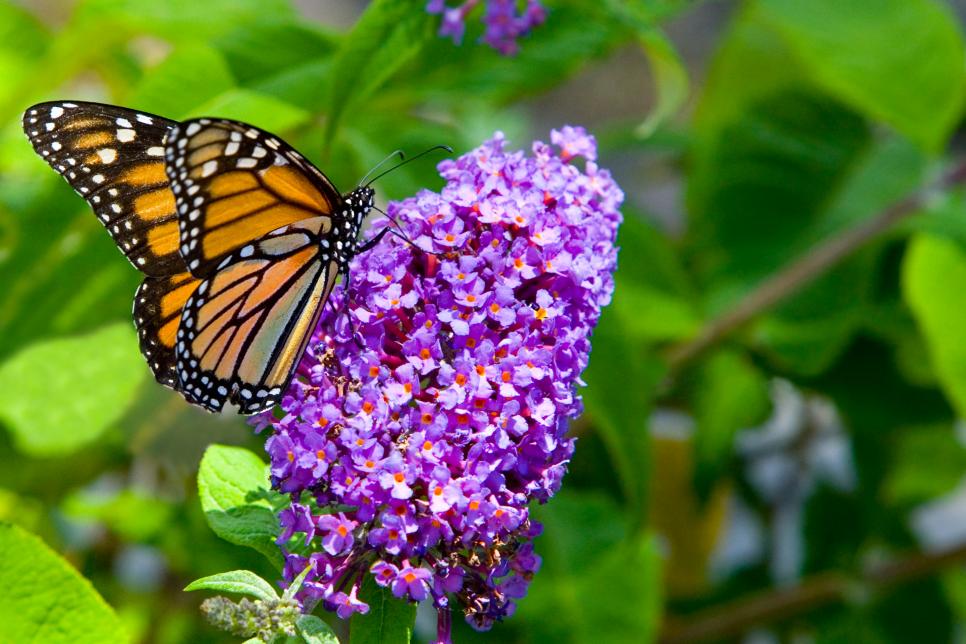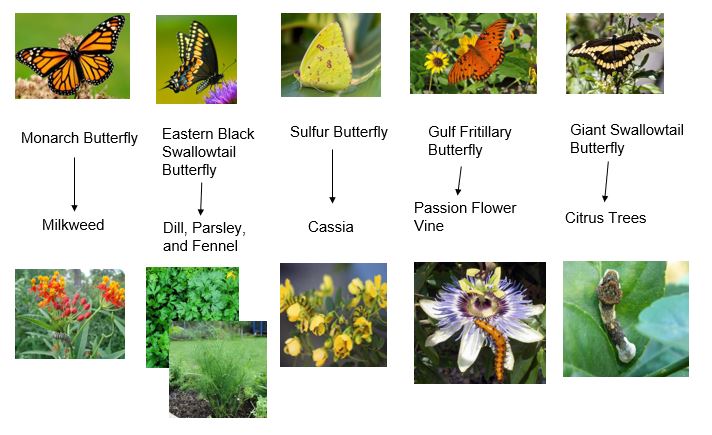The Definitive Guide to Planting for Pollinators in New Orleans
BY WIKILAWN | JUNE 5TH, 2019 | LAWN CARE, LOUISIANA, NEW ORLEANSDue to our mild winters and warm summers, it can seem that we are spoilt rotten with pollinators here in New Orleans, LA. However, pollinators in the United States are in danger, and it is imperative that we take care of them. According to the Xerxes society (1), the Western United States population of Monarch butterflies has experienced at 99.4% decline since the 1980s and more than 80% here in the Eastern side of the U.S.? That is extremely dire news!
Here is an easy guide to what pollinators are, why they are essential, and how to garden and support our local pollinators.
What are Pollinators?

Pollinators are animals and insects that fertilize plants by carrying pollen from one plant to another. Pollinators can be bees, birds, wasps, moths, and even flies, lizards, and humans.
What Do Pollinators Do?
Pollinators fertilize flowers by bringing the pollen from the male part of the flower to the female part of the flower. Without fertilization, the flowers cannot reproduce. Meaning, without pollinators, many plants would not be able to reproduce or produce fruit. That can affect our food supply since all fruits and vegetables come from fertilized flowers of their respective plants.
The Role of Plants and Pollinators. How are they related?
Pollinators fertilize plants, and plants, in turn, provide food and nectar for pollinators. Plants that provide food to pollinators are nectar plants. Certain plants also host the offspring of pollinators, specifically butterflies. These are host plants.
Nectar Plants = Food for Pollinators

Pollinators need to eat, and they feed themselves from the nectar of flowers. Certain pollinators lean towards specific plants more than others. For example, hummingbirds prefer red colored flowers (2) and flowers that they can insert their beaks in. Below is a chart of some pollinators’ favorite types of flowers that grow in New Orleans and their names.
Host Plants = Necessary for Butterfly Offspring
Understanding the life cycle of a butterfly helps us understand why host plants are important. The lifecycle of the butterfly starts with an egg laid on the host plant. Once the egg hatches, a baby caterpillar is born and feeds on the host plant as it grows older. Only this specific type of plant can provide food for the caterpillar, so it is crucial that butterflies have these plants available to them to lay their eggs. Once the baby caterpillar grows large enough, it finds a safe place to form a chrysalis (cocoon) and suspends itself in this chrysalis for a period of time. From the chrysalis, a butterfly emerges, and the butterfly is at its adult stage. At the adult butterfly stage, butterflies need nectar from flowers to feed themselves and breed. The adult butterfly finds a host plant upon which to lay its eggs and the life cycle starts all over again!
Below is a chart of the different types of butterflies in Southeastern Louisiana and their respective host plants.

Pollinators and Pesticides
One last thing to remember when gardening for butterflies: Do NOT apply pesticides to your pollinator plants. A pesticide is not specific to “good” insects like pollinators or “bad” insects. You may end up harming the good insects that our ecosystem needs.
Most commonly: Aphids on milkweed is OK! Remove them by hand or by blasting with a spray of water.
Our pollinators are crucial for our plants, and they need some love. Allow some space for some pollinator-friendly plants in your yard and enjoy the friendly habitat you’ve created for our pollinator friends!
Research Resources:
- Xerxes Society Study: https://xerces.org/2019/01/17/record-low-overwintering-monarchs-in-california/
- C Handelman and JR Kohn Study: http://citeseerx.ist.psu.edu/viewdoc/download?doi=10.1.1.873.8371&rep=rep1&type=pdf
Top Photo: content.yardmap.org
Are you still curious about lawn care in New Orleans? Please visit our New Orleans lawn care page for more information about everything lawn & garden.